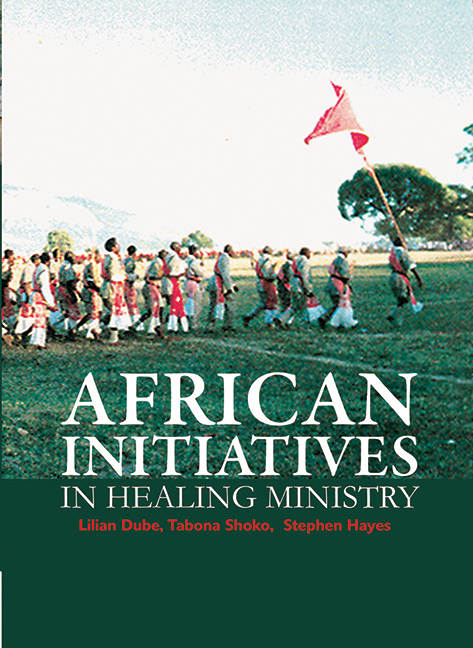Healing in mainline and independent churches
Published online by Cambridge University Press: 28 February 2020
Summary
Healing has become a major feature of study by scholars in different academic disciplines. In Zimbabwe scholars in medicine and social science have explored religion and healing in the context of Shona traditional religion as well as independent church aetiologies and medical views and praxis. Healing in the ‘mainline churches’, however, has not drawn much attention, but there is a growing awareness of the need to assess healing in the mainline churches in the African context.
Michael Gelfand, an empathetic medical doctor and lay anthropologist in Zimbabwe, studied religion, medicine and culture in the Shona context. Gelfand lived a long time among the Shona and with his medical background, gained considerable knowledge of the Shona understanding of the causes of disease and the restoration of health. In the Shona belief system spirits and witchcraft cause sickness. The n’anga seeks the cause and heals diseases (Gelfand 1965:25).
Other leading scholars have contributed to building up a picture of Shona medico-religious beliefs and practices using a variety of approaches. These contributions include Michael Bourdillon's (1987) anthropological studies of the Shona, Hubert Bucher's (1980) sociological assessment of the Shona cosmology, Herbert Aschwanden's (1987) symbolic analysis of death and disease among the Shona-Karanga and Gordon Chavunduka's (1978) sociological approach to traditional healing and medicine in Zimbabwe.
Research on independent churches in Zimbabwe is inspired by the missiologist Marthinus Daneel. His studies of the southern Shona Zionist churches are significant. Daneel has shown that these independent churches centre on the theme of healing, and so he has called them ‘healing churches’. Daneel's studies also reveal that in Zionist services, much attention is given to the cause of suffering and sickness or concern for the sick. Daneel notes that these churches have the same interest in health that was the concern of Shona traditional religions. Daneel captures the most attractive mark of Zionist churches in their transformation of the old and new world views expressed in faith healing.
The major attraction of the independent church movement lies in its remarkable ability to combine vital aspects of the old order – the basic structure of African society, beliefs, sentiments and philosophy – with new religion, Christianity. (Daneel 1971:457)
These studies show that healing is a fundamental feature of both African traditional religion and Christianity. In traditional religion, healing is holistic.
- Type
- Chapter
- Information
- African Initiatives in Healing Ministry , pp. 19 - 22Publisher: University of South AfricaPrint publication year: 2011



